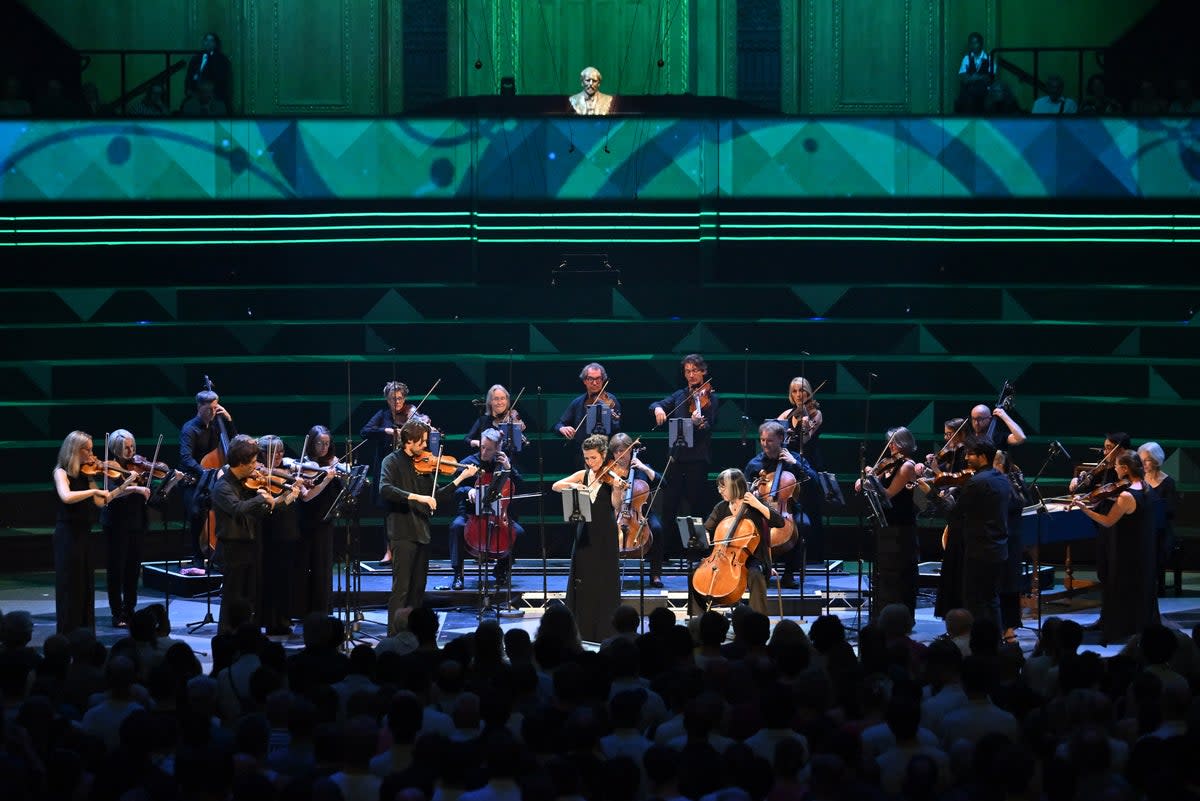BBC Proms: Britten Sinfonia/Thomas Gould review - the ensemble takes on Max Richter with unfussy panache

Composers have always treated the past as a jewel casket to be plundered, or a dressing-up box full of musical apparel they can put on to create an alternative identity.
Some might call it post-modern but it’s a lot older than that. In last night’s Prom, Britten Sinfonia, directed by violinist Thomas Gould, offered three pieces by composers who all dug into the past for inspiration, while remaining true to themselves.
Lera Auerbach’s Sogno [Dream] di Stabat mater toyed with fragments of Pergolesi’s famous piece, creating vistas simultaneously ancient and modern, baroque and expressionist. While strings dominated, vibraphone lent an ethereal quality, decentring the baroque gestures while never leaving them completely behind. It was brief, to the point and mightily effective.
Next came the genuine baroque: Arcangelo Corelli’s Concerto Grosso Op.6 No.2, his most celebrated work. Britten Sinfonia’s strings gave us a fuller sound than we might have expected but this was a disciplined and energetic account, even if something a little wilder might have been welcome.
Daringly, Gould went, without a pause, straight into Michael Tippett’s Fantasia Concertante on a Theme of Corelli [1953], built around two phrases from the piece we’d just heard. Gould ensured that it sounded distinctly 20th-century, distinctly Tippett while allowing Tippett’s profound empathy for baroque music to shine through. Certain passages even had a bluesy intensity that not every performance finds in Tippett.
The main work on the programme was Max Richter’s Recomposed: Vivaldi – The Four Seasons. Vivaldi’s suite has been so endlessly cannibalised, bowdlerised and generally marmalised that we almost don’t hear it anymore. Richter treats it as an exciting novelty offering endless opportunities for play. He creates ingenious, disconcerting counterpoints, some witty, some reverent, others iconoclastic.
Besides taking the solo violin part, Gould shaped the whole performance with unfussy panache. Rhythms hit hard and there was an almost improvisatory freedom pulsing through the playing, both solo and ensemble. While the string players dominated, Maggie Cole’s harpsichord anchored us in Vivaldi’s world while Lucy Wakeford’s harp opened up completely different perspectives. Some might say, “What’s the point?” but this was a bracing performance of an inventive piece of reappropriation.
Gould and most of Britten Sinfonia stood throughout the Prom but they still had the energy for an encore, a somewhat funked-up rendition of a folkish piece by Danish composer Rune Tonsgaard Sørensen. As knees-ups go, it certainly went.
Available on BBC Sounds


